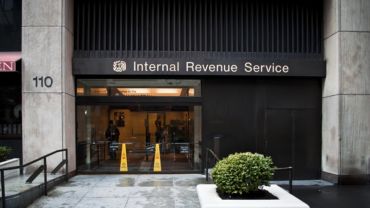IRS Notice 2018-75 (Sept. 21, 2018); IRS News Release IR-2018-190: IRS: 2018 Employer Reimbursements for Employees’ 2017 Moves Are Generally Tax-Free (Sept. 21, 2018)
The IRS has clarified the effective date of the Tax Cuts and Jobs Act (TCJA) provision that suspended the income exclusion for employer-provided moving expense benefits. Before the TCJA’s enactment, Code § 132(g) allowed employers to pay or reimburse employees’ qualified moving expenses on a tax-free basis, so long as the expenses would have qualified for an individual income tax deduction under Code § 217 and the amounts were paid under an accountable plan. The TCJA suspended that exclusion, however, stating that it “shall not apply to any taxable year beginning after December 31, 2017, and before January 1, 2026,” except for certain active duty servicemembers who move pursuant to a military order and incident to a permanent change of station (see our Checkpoint article). (The TCJA also suspended the individual deduction for the same period.) The suspension’s effective date provision prompted questions to the IRS about whether it would apply to benefits provided during the suspension period if the employee’s move occurred before 2018. For example, an employer might have paid a third party in 2018 for moving services provided in 2017, or reimbursed employees in 2018 for expenses they paid for a 2017 move.
The IRS has determined that the effective date provision does not specify whether the suspension applies based on the date payments or reimbursements are received, or the date of the move. The notice resolves the issue by stating that the suspension applies only to payments and reimbursements for moves that occurred after December 31, 2017. Consequently, employer payments or reimbursements in 2018 for expenses attributable to an employee’s move in 2017 can be excluded from income if (1) the expenses would have qualified for the moving expense deduction had they been paid for by the employee in 2017 and (2) no deduction was actually taken by the employee. Employers that withheld and paid federal employment taxes (e.g., income tax withholding and FICA) on such payments or reimbursements may correct overpayments using either the adjustment or refund process, and are directed to various IRS resources explaining the two processes.
EBIA Comment: This resolution preserves the reasonable expectations of employees and employers that expenses incurred for 2017 moves—especially those incurred before the TCJA’s mid-December enactment—could be paid or reimbursed on a tax-free basis, even if that was done after year-end. Employers that cautiously withheld tax on moving expense benefits provided in 2018 (for 2017 moves) will now need to correct their withholding and overreporting. For many, this will involve filing Form 941-X in the fourth quarter and having the credit applied to their fourth quarter Form 941. Employers that are tempted to correct immediately in September, or to postpone the correction until December, should note that the IRS needs time to post a credit before it processes Form 941, so the Form 941-X instructions discourage correcting during the last month of a quarter, which can trigger an erroneous balance due notice. For more information, see EBIA’s Fringe Benefits manual at Section XVII (“Moving Expense Benefits”).
Contribution Authors: EBIA Staff.







